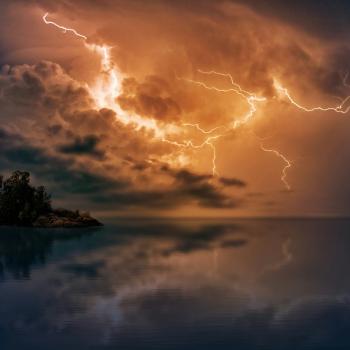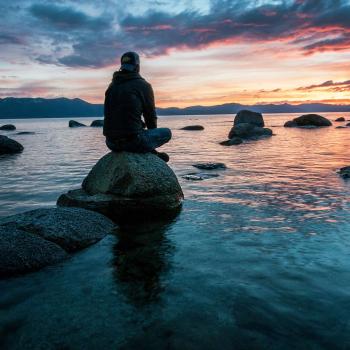Did you know that one of America’s greatest philosophers, Ralph Waldo Emerson, was once a minister in the Unitarian church? Emerson graduated from the Harvard Divinity School and spent three-plus years as a member of the clergy. He ultimately found the profession to be “antiquated,” complaining that church services were rendered “in the dead forms of our forefathers.” He walked away to start a new life as a writer and public speaker.
Like Emerson, you too may have been a part of an organized religion at some point in your life. You attended church or another house of worship on a regular basis, but you gradually stopped going. Maybe there was too much dogma or you weren’t getting much out of it or you found it too inconvenient. The only problem: this act of straying from the church left a void at your core.
Even though you stopped going to church, the spiritual world still calls you.
You still have the yearning to connect with something greater than yourself. Sometimes you can even sense it in the ether, the feeling that there is a greater life force, a Divine energy, out there. You may even believe that sometimes this force guides you, through synchronicity or by way of your own intuition.
You may have begun spiritual activities that put you in touch with this life force, which you likely call God. You engage in mindful breathing, prayer and/or meditation. You read spirituality-related blogs and books. You take yoga class, spend time outdoors to connect with nature, seek a deeper communion with the people around you.
You’re in the process of creating your own personal religion.
In A Religion of One’s Own: A Guide to Creating a Personal Spirituality in a Secular World, Thomas Moore offers valuable instruction on how the “spiritual-but-not-religious” can develop and enhance their own spiritual practice and “move away from being a follower to being a creator of religion.” There’s no church required, because in essence you are the church, your mind and body are the temple.
In this new spiritual world, you look to formal religions for insight, but create and follow your own path. You create a personal religion rooted in the practices and rituals of your own everyday life, treating “the natural world and everyday activities as sacred.” You sense the divine in nature, through the appreciation of art and music, by “feeling your soul stir at family gatherings, in deep friendships and romantic relationships.”
If you consider yourself a spiritual person, Moore stresses that “the discovery or creation of religion of your own, is not an option.” It is a necessary step in your spiritual development, a calling, a part of your essence that you cannot ignore if you want to achieve true spiritual fulfillment.
The key to success is to deepen and further enrich your spiritual practice—to move beyond paying lip-service to being “spiritual but not religious” and place yourself squarely on a path of spiritual growth and development. It only works with your intention and commitment to make it work.
The good news is you are not starting with a blank slate.No matter the limitations of your current practice, there is room for expansion. You “don’t have to rely entirely on our originality” to enrich your spiritual pursuits. Moore instructs us that:
Language, ideas, techniques, methods and rituals are there to be borrowed. We can learn from many different traditions how to meditate, how to honor special days…how to go on a pilgrimage, how to pray, how to fast and abstain…how to forgive and heal and offer gratitude.
Among the spiritual activities Moore recommends is reading and studying classic spiritual texts, teachings as diverse as the Bible and the wisdom teachings of Native Americans. He also calls out the Lectio Divinapractice of the Benedictine monks, which involves four simple actions: read, meditate, pray and contemplate.
Moore also places great importance on the use of sacraments in your practice, which he defines “as an outward sign signifying inward grace.” He calls out the example of Thoreau at Walden Pond and how he had his own set of “sacraments.” Thoreau saw acts as simple as taking a bath or rising early as connecting him with “the gods.”
The fact is, with the right intention, virtually every daily activity can be seen as a way to connect with the Divine. Moore even mentions one of my favorite soul-enriching activities: sipping a cup of coffee in the early morning hours, in quiet contemplation. The potential spiritual activities are as endless, Moore citing the following historical examples:
Emerson lectured, Thoreau built a cabin and wrote a diary, Dickinson wrote poems, Kevin Kelly arranges flowers, Simone Dinnerstein plays Bach, you make gardens, I study and write books. Just as we each may have a religion of our own, we may also have our own rituals and narratives and express our intuitions in ways that are most comfortable to us.
It’s all about staying “in tune with the rhythms of nature and the pulse of your life.” In following your own path, you discover, sometimes through trial and error, what activities work best for you. In time, you create a spiritual practice that is true to yourself, removing the middle-man that is the church, until nothing separates you from God.














